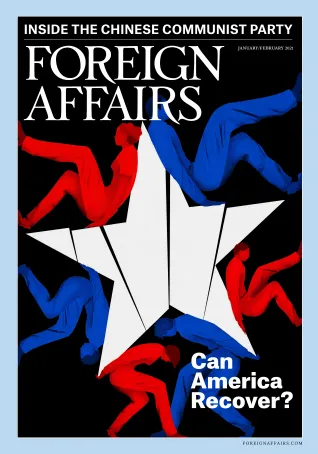
作者/Author(s): Yan Xuetong
網站來源/Source: Foreign Affairs
日期/Date: 12/20/2024
關鍵字/Keywords: 國際政治、川普、中國
摘要:
川普可能會擴大他第一任期的反華言論。然而,北京政府並不像2017年那樣害怕川普,反而認為他的回歸對中國有利。
- 中國並不認為2024年美國總統選舉結果,會導致美國對華政策會發生根本性改變。北京政府已經適應了美國的對抗性政策,並且發布針對美國的外交政策指導方針。
- 中國預期川普政府可能在經濟、軍事和外交領域加強競爭,競爭會隨著中美兩國的民粹情緒不斷加劇。
- 儘管如此,中國仍相信自己也許能從川普的第二次執政中受益。
- 中國樂觀地認為,中美之間的戰略競爭僅限於經濟和軍事領域。
- 川普的孤立主義政策可能會激怒美國的傳統盟友。因此未來幾年,各國政府可能在中美之間採取避險策略。
- 中國可以利用其經濟實力以及與俄羅斯的外交關係,協助川普制定俄烏和平協議。
- 中國相信,川普明白兩國之間的軍事衝突對美國弊大於利。因此,川普會避免把挑釁升級為軍事衝突,並將中美競爭限制在一定範圍內。
- 然而,中美兩國目前都專注於解決國內問題。美中改革國內問題的能力將決定雙方的實力差距,從而影響這場強權競爭的結果。
Summary:
Trump may expand his anti-China rhetoric from his first administration. However, the Beijing government does not fear Trump as much as his first administration and views his return as favorable for China.
- China does not anticipate the US's policy toward China shifting regardless of the results of the 2024 US presidential elections. The Beijing government has already adapted to the US's combative policies and published a foreign policy guideline toward the US.
- China expects intensified competition from the Trump administration across the economy, military, and diplomacy, catalyzed by populist sentiments on both sides.
- Nevertheless, China believes it may benefit from Trump's second administration.
- China is optimistic that its strategic rivalry will only be limited to the economic and military realms.
- Trump's isolationist policies will anger its traditional allies. Therefore, governments will choose to hedge between China and the US in the coming years.
- China could leverage its economic power and diplomatic relations with Russia to assist Trump in formulating a peace deal to end the Russo-Ukraine War.
- China is confident that Trump understands that a US-China military conflict would do more harm than good to the US. Therefore, Trump will avoid boiling his provocation into a military conflict and limit the US-China competition.
- However, China and the US are preoccupied with domestic issues. Their ability to reform domestic problems will shape their power gap and, thus, the outcome of the US-China competition.
